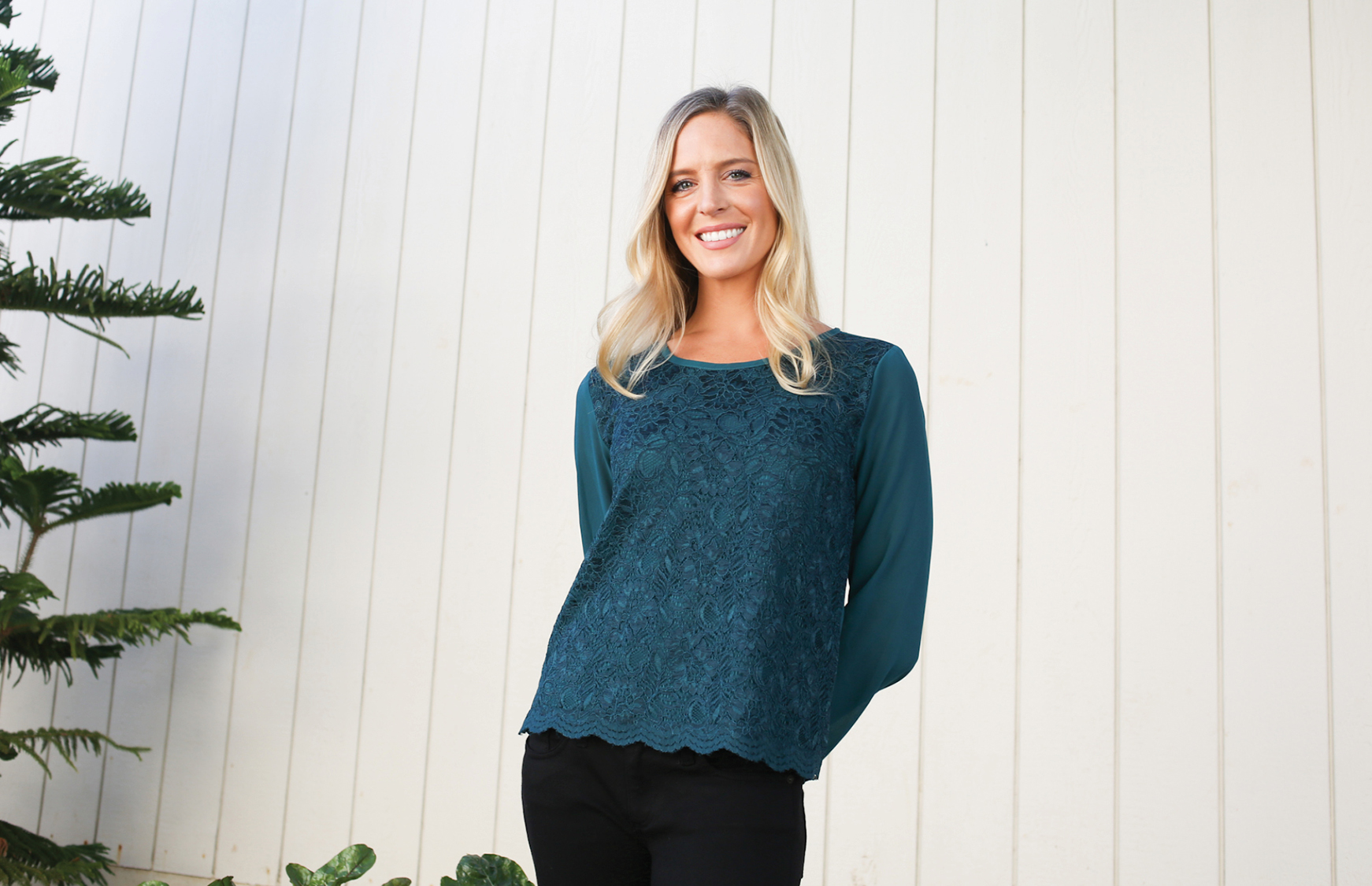In the world of academia, few embody the word “inspirational” more than Carly Faegler-Zuffinetti. Working as a specialized academic instructor in California’s Escondido Union School District, Carly, 33, helps to ensure that students who face language struggles, socioeconomic difficulties and other learning barriers are receiving the best public education possible.
After receiving a degree in Elementary Education from Ball State University in 2003, Carly relocated from Indiana to California, where she discovered that her passion for teaching felt the most rewarding while working through the challenges of educating at-risk youth. Today, her amazing planning and organizational skills allow her to consistently coordinate a variety of lesson plans that help each student meet their individualized academic, social and behavioral goals.
Above all, Carly’s real joy comes from seeing her students excel and have those small-but-mighty ‘a-ha!’ moments upon grasping a new concept. Career Contessa is thrilled to feature Carly and to present a glimpse into how she balances her fulfilling career with an equally satisfying life.
Her Starting Point
Many people find the transition between college and “real life” a bit daunting. Can you tell us about your journey between the two? What was your first job post-college?
After college and student teaching in 2003, I moved from Indiana to California. The first job I accepted was an instructional assistant position at a public elementary school in a very affluent neighborhood in Los Angeles. While I really enjoyed working at this school, I knew that I wanted the challenge of working with more at-risk students. The following year, I began working in a unique, non-public school setting (both state and privately funded) where every student received special education services. The majority of the students at the school had social and behavioral disabilities. I enjoyed working with the students and stayed there for five years. Working with this population was emotionally difficult at times, but also very rewarding. I learned so much in those five years and developed very meaningful relationships with the students and their families.
Did you always want to work in Special Education? When did you know you wanted to pursue teaching as a career?
I knew I wanted to be a teacher when I was in elementary school. Along the way, I sometimes thought about other careers involving animals or maybe sports, but I think I always knew in my heart that I should be an educator. I was lucky enough to have had great examples of wonderful teachers in my own life who inspired me to want to teach. I always had babysitting jobs and taught swimming lessons as a teenager. When I was 16, I was a student assistant in the resource room at my high school and loved working with my peers who had learning differences. They made me smile everyday! I’ve always had a soft spot for the underdog, and I wanted to help the students feel more socially involved. I loved this opportunity and wanted to learn more about their disabilities and what I could do to help them.
Where did you receive your Special Education training and certification? How long did training take? Did you specialize in a specific disability?
I started my undergraduate training at Ball State University. I attended BSU, one of the most renowned schools in the country in the field of education, for four years and earned my Bachelor of Science degree in Elementary Education. When I moved to Los Angeles and began teaching at a school specifically for students with special needs, I decided to go to National University to earn my special education certification. I was so interested in the field that I continued at National University and earned my Master’s Degree in Special Education, specializing in mild and moderate disabilities. Last year, I earned my Autism Authorization through California State University San Marcos.
When you are a teacher you are also forever a learner—The trainings never end!
Her Big Break
You currently work in the Escondido Union school district. What do you like about this district? Are there certain characteristics that make a school district “better”?
My school district has some really amazing teachers who are very supportive of students, families and their needs. A good school district supports the teachers and makes sure to put the best interest of the students first, above all. My school is a Title I school, which means it is provided with financial assistance due to having a high percentage of educationally at-risk students based on socioeconomic status, second language learners and other factors. Our district works hard to ensure these students are receiving the best public education possible, despite the hardships they face.
How many students are in your class? How does a special education class differ from a general education class?
The setting I work in is called a Special Day Class. I have students who learn better in a smaller class setting and require additional support in all academic subjects. My students have specific learning disabilities such as ADHD and Autism Spectrum Disorder. I have 11 students in my class this year and one instructional assistant. Most general education classes at my school have between 25 and 30 students.
What do your lesson plans look like? How do you incorporate different learning styles into your planning?
Being a special education teacher requires a lot of planning and organization. Each student has very specific goals, needs and learning styles.
I plan my lessons based on the specific academic goals written in the students’ Individualized Education Programs/Plans. IEP’s are legal documents and every student who receives special education services has one. They list services that will be provided to the students, including specialized academic instruction, speech and occupational therapy and adaptive physical education. IEP’s also state the type of setting that is to be provided, along with academic, social, physical and behavioral goals for the child. I plan one-on-one lessons according to individual goals, small group lessons for less specific goals and whole group lessons for teaching science, social studies and social skills.
Every lesson includes visuals, technology, kinesthetic learning and hands on activities. Right now I am really into Teachers Pay Teachers and My Big Campus—There are so many great ideas based on any topic or subject.
In addition to a student’s academic development, you also help with behavioral and social development. Could you explain how you do this?
My students have individual social and behavioral goals and I create positive behavioral interventions and social stories for them based on these goals. The social stories may remind them how to interact with others or how to react to particular situations. We also do a lot of role-play and skits to teach behavior and social skills. I take my students to general education classes for specific parts of the school day, and I use this time to guide them in interacting appropriately with their peers.
What kind of relationship do you have with the parents of your students? How important is that relationship to your overall goals?
Because I often have students for three years, I develop close relationships with the families I work with. It is important for the well being of the child to develop a rapport with families from the start. Kids need to know that parents and teachers are on the same team and that we are all working together for them.
Part of my job is to educate parents on the ways that they can enrich the students’ learning when they are at home. I have meetings with parents several times per year to go over homework expectations, behavior plans (carrying school behavior over to home) and communication. I also help parents with in-home behavior and academic plans.
Her Perspective
What is your favorite part of your job? What is the most challenging?
My favorite part is developing relationships with the students and watching them learn and meet their goals. Witnessing those “lightbulb” moments, as I like to call them, is amazing! I love the look on their little faces when they finally grasp and understand a concept you’ve been working on. I make a huge deal anytime we have a breakthrough and the kids get super excited about learning more when they feel that positive feedback from me. One of the biggest challenges is finding what motivates each individual student and how they learn best.
If we had the chance to peek at your schedule, what would an average day look like?
On a school day, I teach from 8:00 a.m. to 12:00 p.m., then have lunch from noon to 12:30 p.m., and teach again from 12:30 p.m. to 2:15 p.m. I try to leave work everyday by 3:00 or 3:30 p.m. and go straight to a workout class (yoga, pilates, barre or tennis). Then I head home and walk my dog with my husband, make dinner and relax the rest of the evening. On the weekends, I am always on the go—running errands, hiking, spending time at the beach, golfing and enjoying dinners with my husband and friends.
Besides being a teacher, what are some other career opportunities in special education? What would be next for you if you weren’t a teacher in this specific field?
One career opportunity for people with a special education background is to become a behavior specialist. Behavior specialists work in homes with children and families to help develop behavior plans for students with specific social and/or behavioral needs. Behavior specialists also could work within school districts.
Another interesting option would be to become a special education advocate. Advocates work on behalf of the parents of children with special needs to ensure that the student's individual needs are adequately met within the school system.
Others in my field may choose to work in hospitals, group homes, community learning units or day treatment facilities. With some additional specialized educational course work, people with master's degrees in special education may venture into more clinical professions, such as occupational therapy, speech pathology or physical therapy. If I weren’t working in a school setting, I would definitely want to work more closely with families in need of support, either as an advocate or in the home setting.
Figuring out what career to pursue can be tough. What advice would you give to women working through their own professional learning curve?
I would recommend taking every possible opportunity to research, observe, job-shadow and even intern in as many fields that interest you. Take your time before making a decision! I really wish universities would allow incoming freshman to choose careers to observe for the entire first semester or year, before even deciding on a major. I think it would help a lot of students who are unsure about which career to choose and to understand what the careers they are interested in truly entail.
I really believe in following your heart and not letting a career define you. It’s important to find balance—I love my job, but I don’t let it consume my life. I look forward to and make time for the things I enjoy in life like yoga, beach walks with my dog, tennis, golf, travel, my book club and spending quality time with my husband, family and girlfriends. I take a lunch break every single day. I don’t stay in my classroom because, if I do, I will find something to work on. Leave your desk and office during breaks and at lunch, if possible.
Be aware that although you may enjoy your career, it is still work and it won’t always be rainbows and butterflies. Learn how to separate work from the other aspects of your life; in other words, try not to take your work or things that happen there home with you. You should have the desire to learn and grow within your career and, if your career is making you miserable, it’s probably not what you should be doing with the majority of your day. Life is too short!
You May Also Like
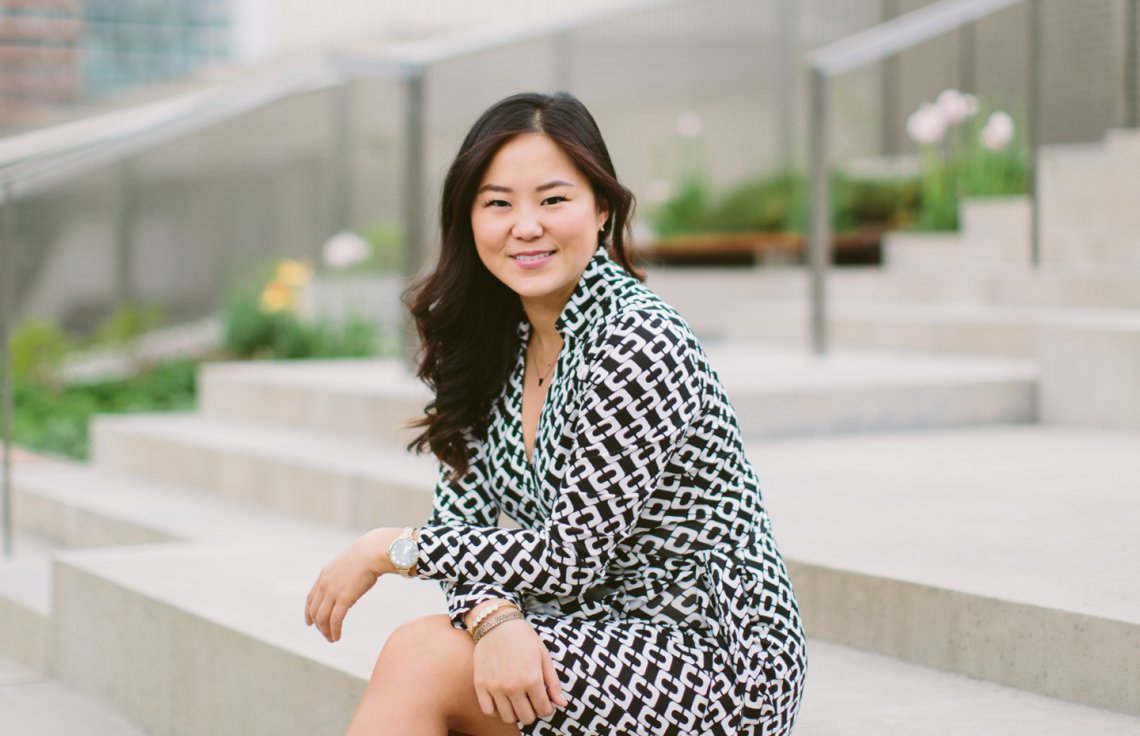
Government + Public Policy
How to Become a Foreign Service Officer
Ever wondered what it would be like to work in Foreign Affairs? Gloria Chou knows, and she's spilling.

Government + Public Policy
Noor Elkhaldi on Taking a Break From School to Work as an SVU Counselor
"You cannot care for others if you do not care for yourself."
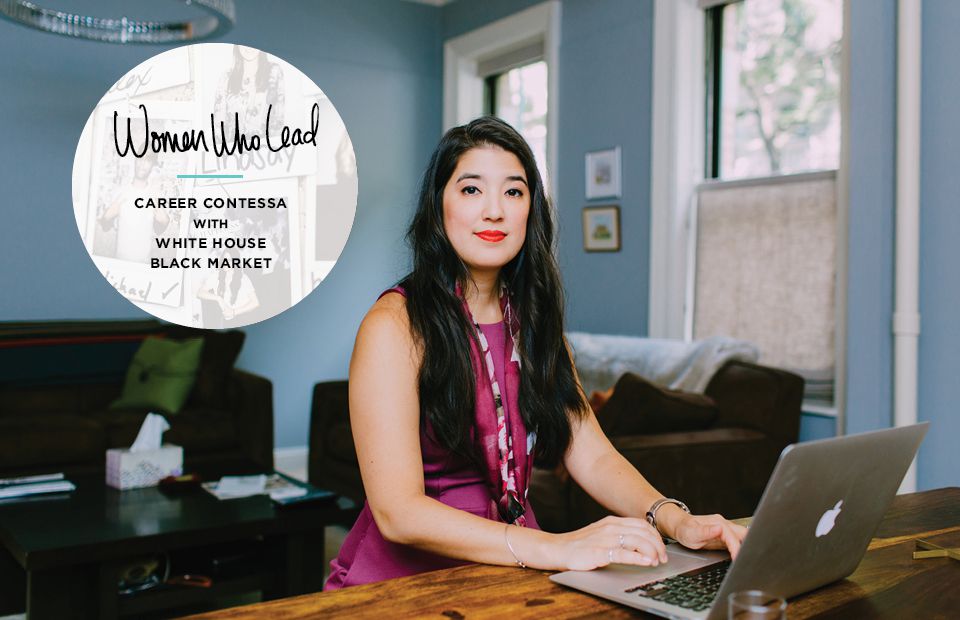
Consumer Services, Education, Finance
Women Who Lead: Alexandra Dickinson, Founder and CEO of Ask For It
On taking risks and asking for more—always.
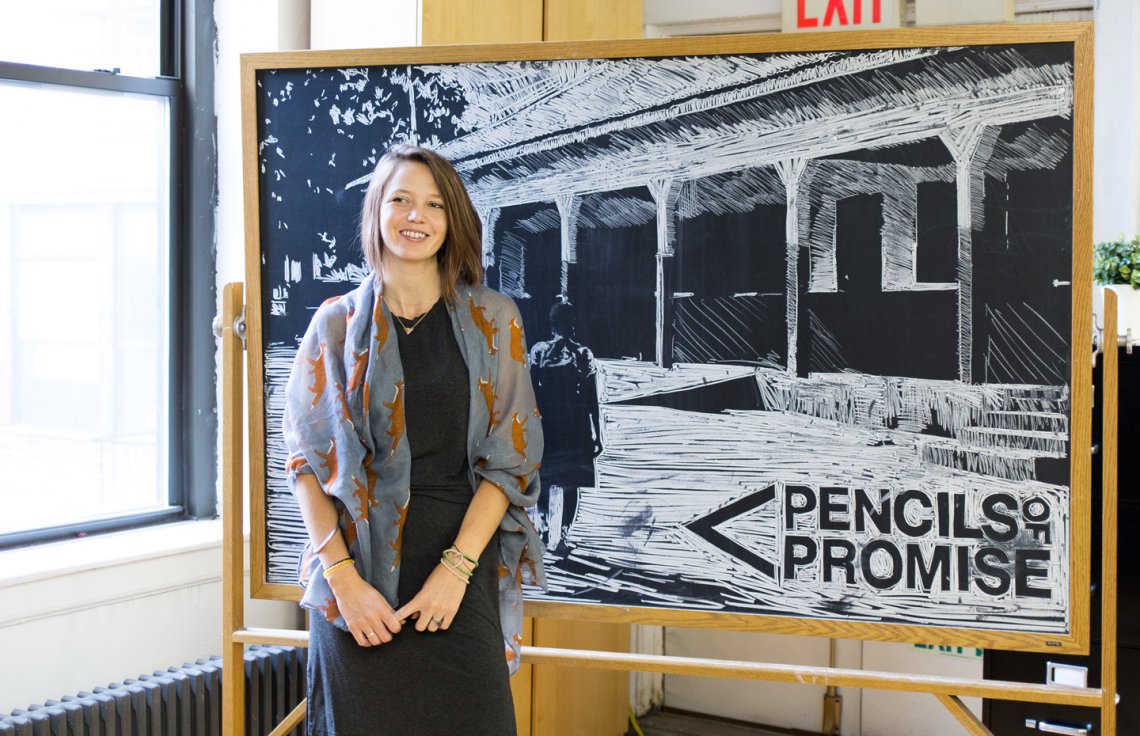
Nonprofit, Social Responsibility
Leslie Engle Young on What a Director of Impact Actually Does
This philanthropic globetrotter found her dream career working at Pencils of Promise.
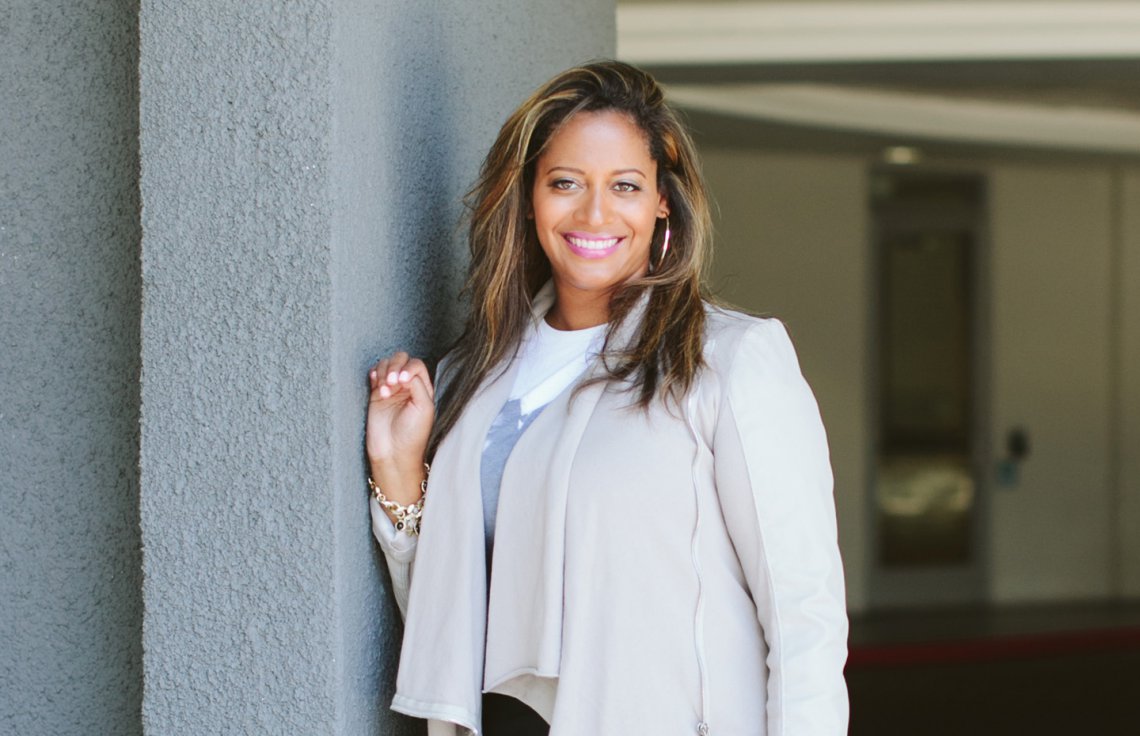
Entertainment, Government + Public Policy
Meet the Woman Behind Your Favorite T.V.
See how Candace's legal background has helped her climb the ladder to a director role at Sony Pictures.
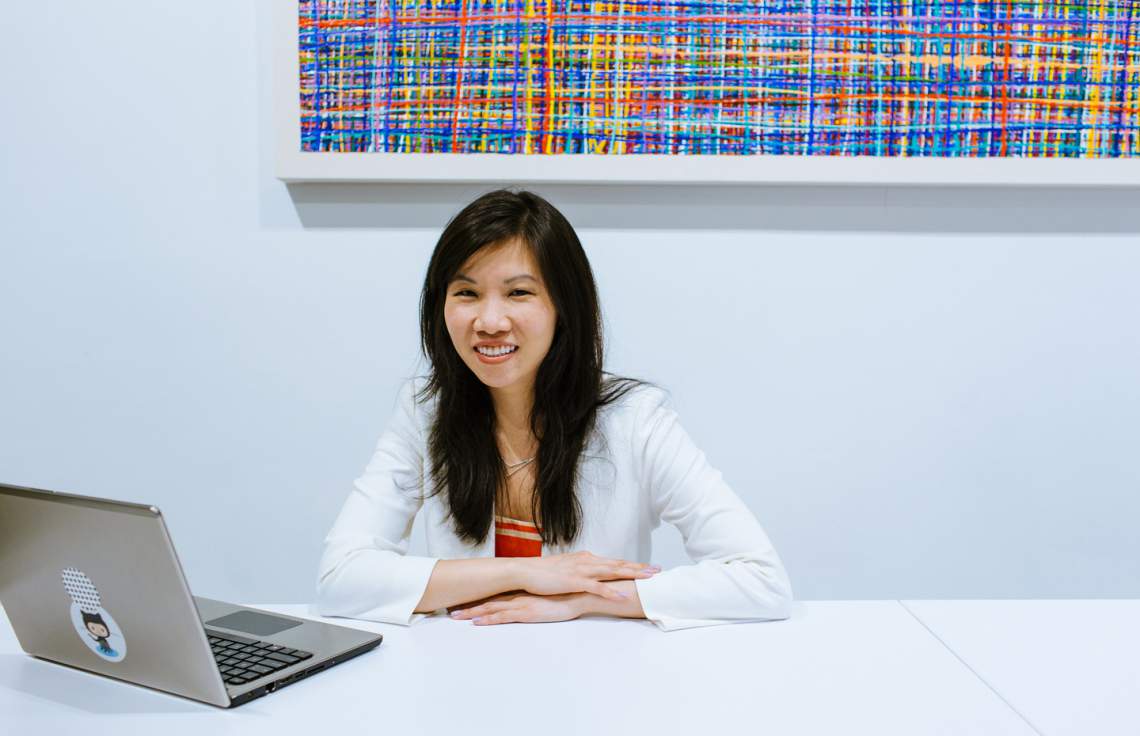
Government + Public Policy
This Millennial Entrepreneur Talks Politics, Activism, and...How to Vote?
Election season's almost over, but Maria Yuan's company, IssueVoter, is just getting started.
Get the Best Career Advice Delivered To Your Inbox
Join our newsletter to stay in the loop.
